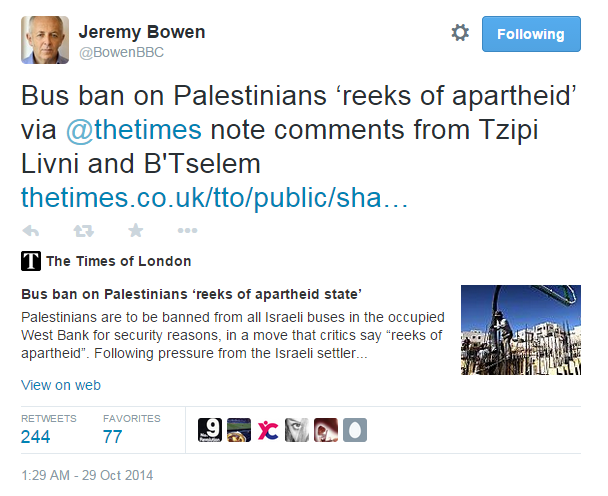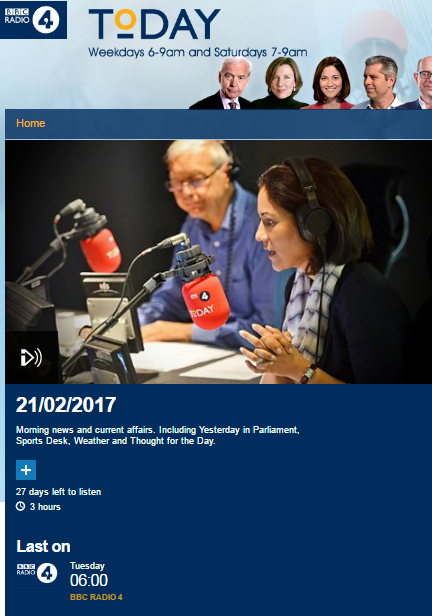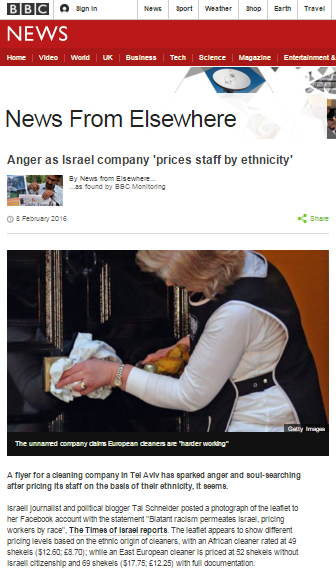The flimsiness of the BBC Middle East editor’s adherence to editorial standards of accuracy and impartiality in his own Israel-related reporting is by now legend. It therefore came as little surprise to see that Jeremy Bowen applies a similarly politically motivated approach to the issue of the accuracy of content produced by other media outlets which he chooses to promote on social media.
Here is a Tweet sent by Bowen to his one hundred and ten thousand followers on October 29th:
Bowen’s intentions are amply evident: he uses an article produced by the supposedly authoritative London Times to promote the notion of a ‘bus ban’ on Palestinians which purportedly shows that Israel is guilty of ‘apartheid’.
The ‘apartheid’ trope – now a prime component in the toolbox of anti-Israel campaigners – is of course employed to portray Israel as a country beyond the pale, the existence of which no right-thinking person can tolerate just as the apartheid regime in South Africa could not be allowed to persist.
However, the Times’ article was inaccurate, as our colleague Adam Levick at CiF Watch demonstrated. Moreover, the Times has since issued a correction to that article – a fact which Jeremy Bowen has to date failed to communicate to the 110 thousand people he misled.
The BBC’s own editorial guidelines on impartiality in news, current affairs and factual output state:
“Presenters, reporters and correspondents are the public face and voice of the BBC – they can have a significant impact on perceptions of whether due impartiality has been achieved. Our audiences should not be able to tell from BBC output the personal prejudices of our journalists or news and current affairs presenters on matters of public policy, political or industrial controversy, or on ‘controversial subjects’ in any other area. They may provide professional judgements, rooted in evidence, but may not express personal views in BBC output, including online, on such matters.”
Similar principles appear in other sections of BBC policy documents on the use of social media with the BBC News social media guidance clearly instructing staff as follows:
“You shouldn’t state your political preferences or say anything that compromises your impartiality. Don’t sound off about things in an openly partisan way.”
There is no way in which the intentional amplification of an inaccurate article promoting a defamatory slur well-known for its use by anti-Israel campaigners by the man responsible for the BBC’s Middle East content can be viewed as anything other than seriously compromising the BBC’s reputation for impartiality. Likewise, it is patently obvious that this Tweet from Bowen – along with many others – clearly communicates his “personal prejudices” to audiences.
Will the BBC do anything about this latest blatant breach of its own editorial guidelines by a senior member of staff? We’re not holding our breath.





